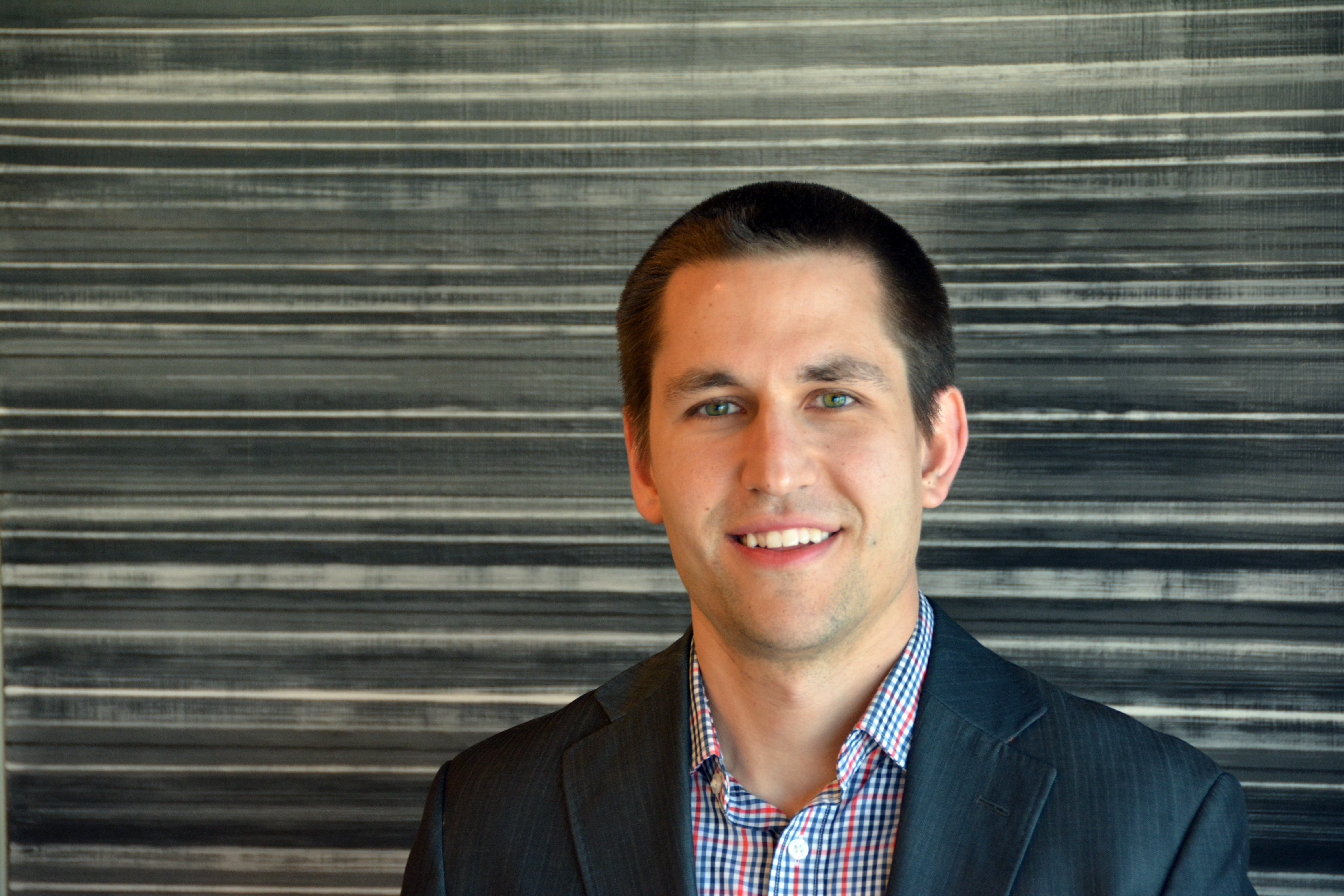
Alumni Feature: David Schmitz (’10)
A 2010 graduate of the Master of Arts program, David gives insight on his experience at Columbia and shares perspective on the program before its renaming. He is currently the Executive Director of the Dubuque Museum of Art, which has received recent publicity on its collaboration with the Smithsonian network.
What degree did you earn from Columbia? When did you graduate?
Master of Arts Management, concentration in visual arts management. I completed coursework in 2009 and successfully defended my thesis in 2010.
What is your current job and how did you get there?
I currently serve as executive director of the Dubuque Museum of Art, a smaller, nationally accredited art museum in Dubuque, Iowa (about 3 hours west of Chicago). While studying at Columbia, I completed a number of internships, one of which led to my first professional role with the Chicago Artists Coalition. My experiences at Columbia and in Chicago led me back to Iowa and to the Des Moines Art Center, where I spent four years in development. I then worked as an arts programmer for our state arts agency, the Iowa Arts Council, managing programs and initiatives around public art and community arts before accepting a dream job as a museum director.
What field are you working in?
Museums and visual arts.
How did the business program at Columbia prepare you for what you do now?
(Caveat: the program and department was structured a bit differently during my time at Columbia and the training was broader than just business & entrepreneurship.) Coming from an arts background – I was a studio art major in undergrad and had little exposure to business concepts – I was really challenged by the business program and coursework in accounting, finance and statistics. Just making the mental transition to this other domain was a new experience, but looking back, it was critical to what I do now.
What was your most valuable Columbia experience?
Just being surrounded by so many incredibly talented people with the vision and tenacity to make things happen! If NASA was ever looking for creatives for a manned mission to Mars, I am confident that Columbia grads could quickly land and establish a dance company, recording studio, and art exhibition.
Were there any particular professors who have made a significant impact on you? How?
Bob Blandford for his contagious laugh and passion for museums and exhibitions; Dennis Rich for encouraging me to follow my research interests and write a thesis; and Philippe Ravanas for making cultural policy seem less wonky.
In what way did your Business degree help your career?
I remember one of the music business faculty saying at orientation that earning this degree is about preparing you for an opportunity 10 years in the future. That advice turned out to be almost exactly right in my case.
Do you have any advice for current Columbia students?
In our very social, digital culture, there is a heavy emphasis on networking and self-promotion, with the assumption being that the right contact or exposure will unlock a rewarding career. This is often summed up by the phrase “it’s not what you know; it’s who you know,” which I think is really misleading advice, at best. While networking is important, especially in highly competitive creative fields, what you know and how you develop your talents still matters, maybe more than ever. My experience has been that developing a career is a fluid and organic process that has more to do with how others know you; for example, do they see you doing good work? Do they place trust in you and have confidence in your abilities and follow through? In the long-term, I believe that doing your best work, seeking out mentors, and taking risks are likely to be the most important factors to your success.